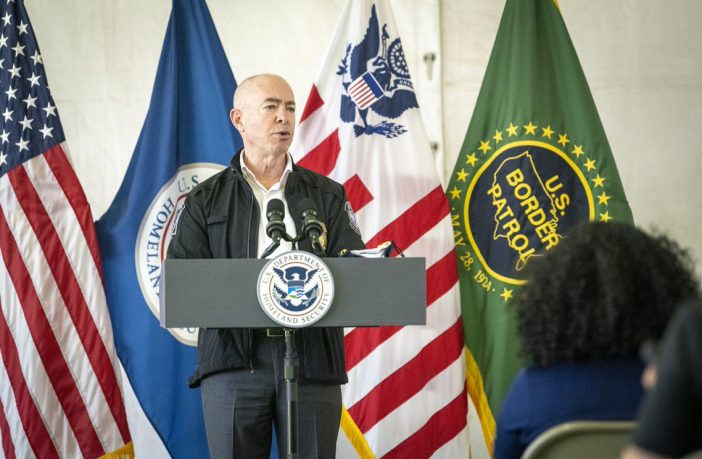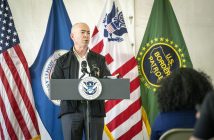The Biden administration has quietly tasked six private groups to recommend asylum for migrants at the southern border. Beyond the questionable legality of the U.S. government delegating such duties to non-governmental organizations is the fact that four of the entities are foreign-based.
How the groups were selected and the terms of their remuneration are just two of many unanswered questions swirling around this sketchy operation.
With the administration canceling the Remain in Mexico policy, opening yet another floodgate for migrants, the Department of Homeland Security (DHS) has delegated asylee vetting responsibilities to six humanitarian groups: Hebrew Immigrant Aid Society (HIAS), Kids in Need of Defense, the International Rescue Committee, Save the Children, Asylum Access and the Institute for Women in Migration. Only HIAS and Kids in Need are headquartered in the U.S.
The government reportedly plans to admit up to 250 asylum seekers a day via the groups’ recommendations. A similar system run by the American Civil Liberties Union has been admitting 35 families daily since March, and continues to operate.
Vaguely, DHS says it is working in “close coordination with international and non-governmental organizations in Mexico” to identify asylum prospects. Without providing details, the agency maintains it has the final say on who gets in.
Jessica Bolter, an analyst at the pro-immigration Migration Policy Institute, calls the program “murky” and potentially counterproductive. “Setting out clear and accurate information about how and who might get in might lead to fewer migrants making the trip,” she suggested.
One thing is certain: Turning over screening duties to private groups that receive public funding for refugee and asylum services carries a built-in conflict of interest. The International Rescue Committee, one of the six DHS-approved organizations, was, at last count, recipient of $493,570,089 in government grants (two-thirds of its funding) for refugee placements.
Robert Law of the Center for Immigration Studies said DHS’ “unusual agreement” raises still more concerns, among them: What measures are in place to ensure these organizations are not accepting bribes (or subjected to coercion) in exchange for recommendations? How can foreign organizations be expected to act in America’s best interests? Who is responsible for ensuring aliens leave the country if their asylum claims are denied?
The administration’s lack of transparency only heightens the many red flags fluttering over this program.





1 Comment
Pingback: DHS Dispatches Foxes to the Asylum Henhouse | 198 Immigration News